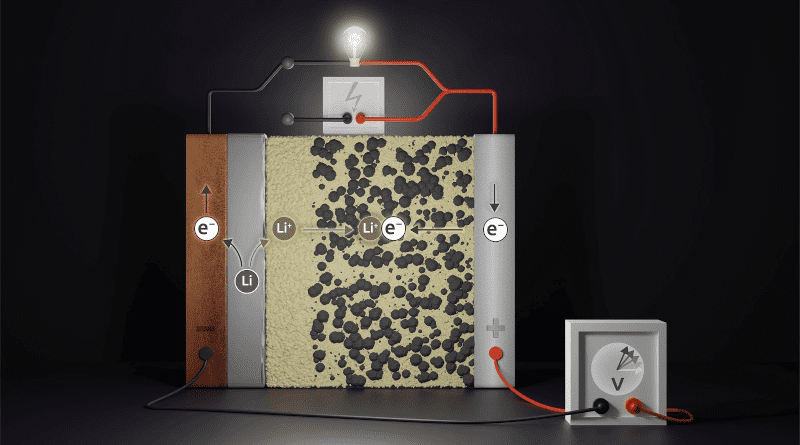FestBatt: The Next Step In Solid-State Batteries
Increased safety, bigger storage capacities, shorter charging times – solid-state batteries are to surpass conventional lithium-ion batteries in almost every performance parameter. The battery competence cluster “FestBatt”, with participation of KIT researchers, has established the basics for this technology and is now developing entire battery systems and production methods in a second funding phase. It is funded by the Federal Ministry of Education and Research (BMBF) with around 23 million euros.
In just a few years, the new technology improving on existing lithium-ion batteries could give electric mobility a decisive push. Professor Helmut Ehrenberg of KIT’s Institute for Applied Materials (IAM), coordinator of the characterization platform in the competence cluster “FestBatt”, is convinced of this: “Solid-state batteries function without flammable liquid electrolytes and provide higher energy density and shorter charging times. Additionally, toxic and rare materials like cobalt are not required anymore.”
The competence cluster “FestBatt”, which started in 2018, develops this key technology on behalf of the Federal Government and it now enters its second funding phase. There is strong international competition – in order to open up future markets for Europe, the Federal Government pooled the competences of 17 scientific institutions into “FestBatt”, which includes universities and Helmholtz institutes as well as institutes of the Fraunhofer Society and the Max Planck Society, all coordinated by the University of Gießen (JLU).
First Steps towards Mass Production
The development of cell components and entire solid-state battery cells based on promising electrolytes will be at the center of the new funding phase. Furthermore, material and process technologies will be developed to aid in their production. However, before a mass production of solid-state batteries can be established, there is a series of scientific and technological challenges that still need to be solved.
The characterization platform coordinated by KIT, with participation of the University of Marburg, the Forschungszentrum Jülich, and the JLU, will characterize contact and boundary surfaces using X-ray, synchrotron, and neutron radiation as well as several microscopy techniques on complex multiphase systems. At KIT, one research team will provide the cathode materials coated with special protective layers to partners of the platform and consequently as a reference material to all other projects involved in “FestBatt” for complete characterization.
Leading Edge with Systematic Characterization
In the first funding phase of “FestBatt”, more than 100 researchers worked on transdisciplinary thematic platforms, aiming to identify suitable materials and synthesize different solid electrolytes. The characterization platform systematically studied these materials, discovered the most important factors influencing the synthesis of solid electrolytes, and identified critical changes in composite materials. This now serves as a basis for further development of solid-state batteries during the second phase of “FestBatt”.
A reliable determination of the performance characteristics and a classification of the widely different cell concepts that are being developed internationally with high intensity were enabled by developing standardized measurement reports.

